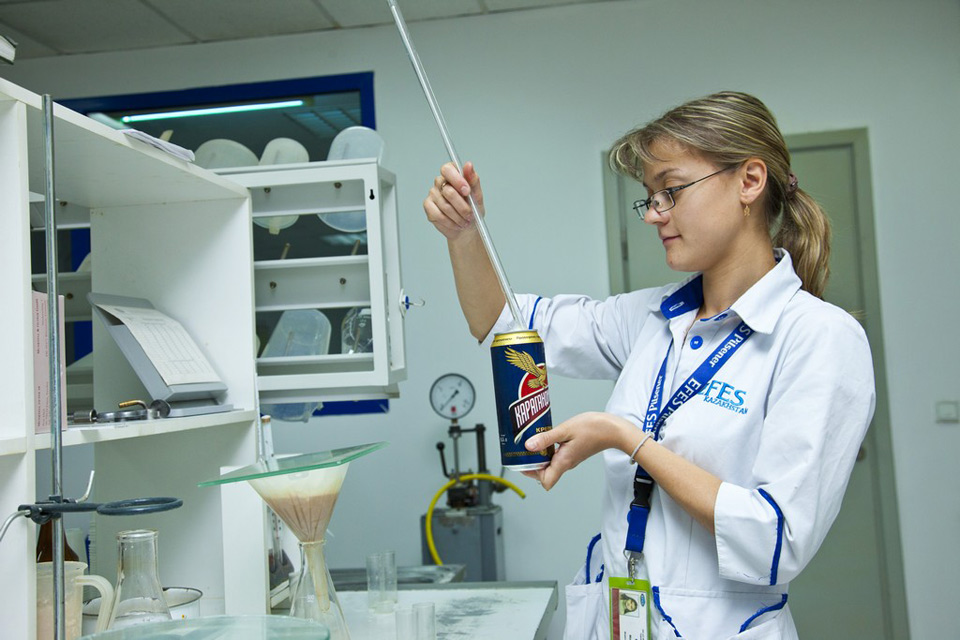Beer production is a complex technological process. For the production of an amber beverage of the highest quality, modern technologies and expensive equipment are used, but, nevertheless, only four ingredients remain the basis for the creation of beer: malt, hops, water and yeast.
Malt is the sprouted grain of brewing barley. This ingredient is rich in carbohydrates, enzymes, mineral salts and vitamins, and it is this component that gives beer a luxurious color, rich flavor and fullness of taste.
The second important ingredient is water. The quality of water, its ion composition make a big impact on the quality level of beer.
Hop - the traditional and most expensive raw material for brewing. It gives beer a specific bitter taste and aroma, helps to remove some proteins from the wort, serves as an antiseptic and increases the foam resistance of beer. There are two main types of hops: bitter and aromatic.
Yeasts are bred and stored in a special yeast shop. Different races of yeast determine the nature of the future beer, and, as a rule, each brewery uses its own pure race.
The technology of beer production consists of several stages. First, malt passes through the necessary processing: it is passed through special cleaning devices, and then crushed and fine grained.
Crushing of malt
The optimal grinding composition should ensure the maximum possible yield of the extract and a sufficiently high rate of wort filtration, since the grain shell serves as a good filter material. Malt is crushed in a hydrated form, which provides the most optimal result.
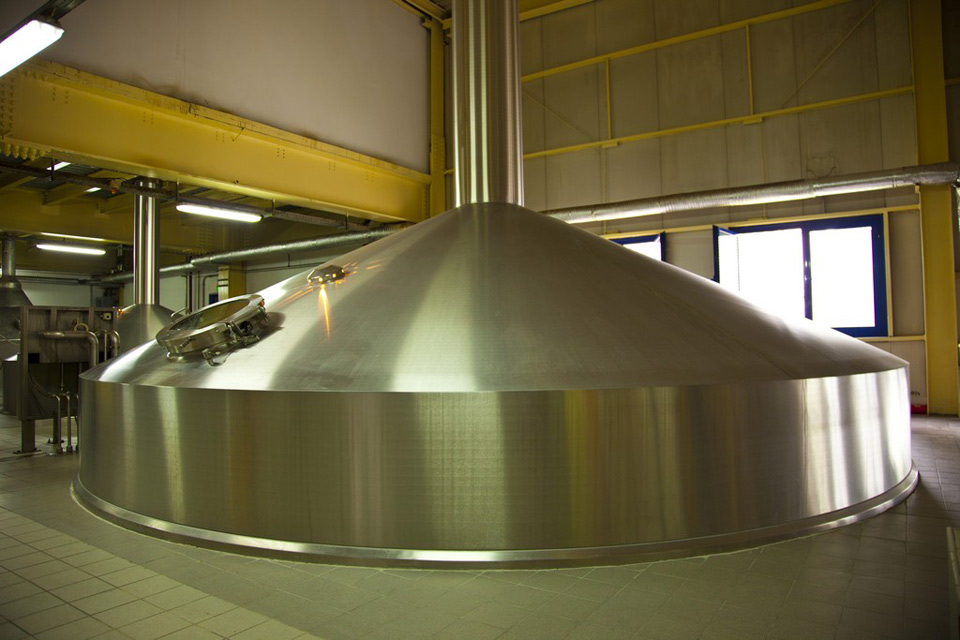
Getting beer wort / Mashing
Malt grinding is mixed with water in the next stage. This process is called mashing, and the resulting solution is a mash. In a special mash tuna, the malt components are split, forming soluble extractives. Further, the congestion is heated and maintained at a predetermined temperature. During the filtration, the mash is divided into two parts: the grains are insoluble substances that do not pass to the next brewing process, and the wort is the liquid part of the mash.
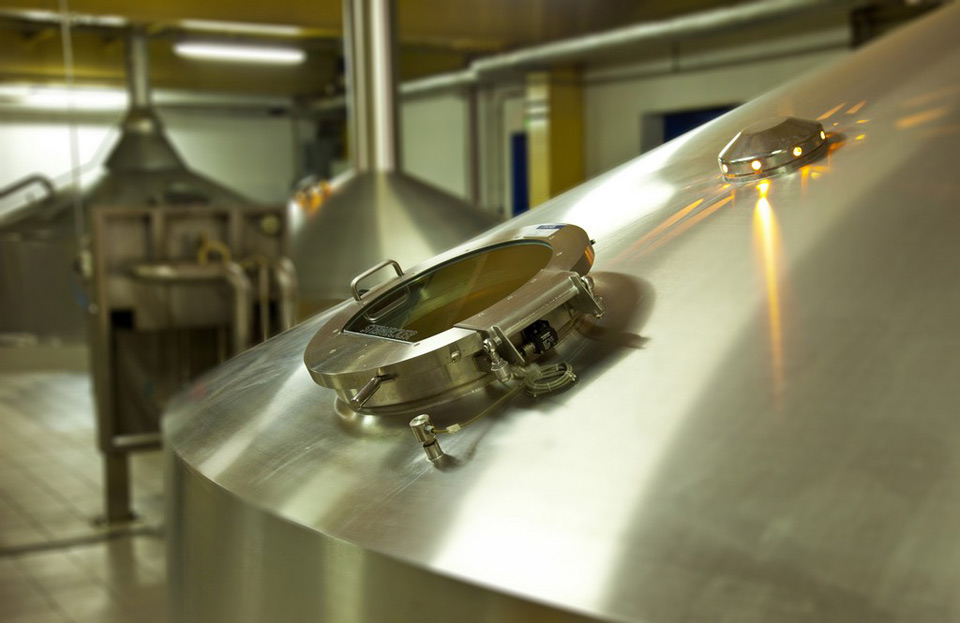
Brewhouse
In the brewhouse there is a key process in the production of beer - the boiling of the wort. In the process of boiling, the wort is subsequently added the following ingredient: hops. Hops, added at an early stage of boiling, gives beer a specific bitter taste, and those added at the end - the aroma and softness of taste. After hopping, the wort passes through the stage of clarification, liberation from suspended matter, and then cooled to the temperature required to start fermentation.
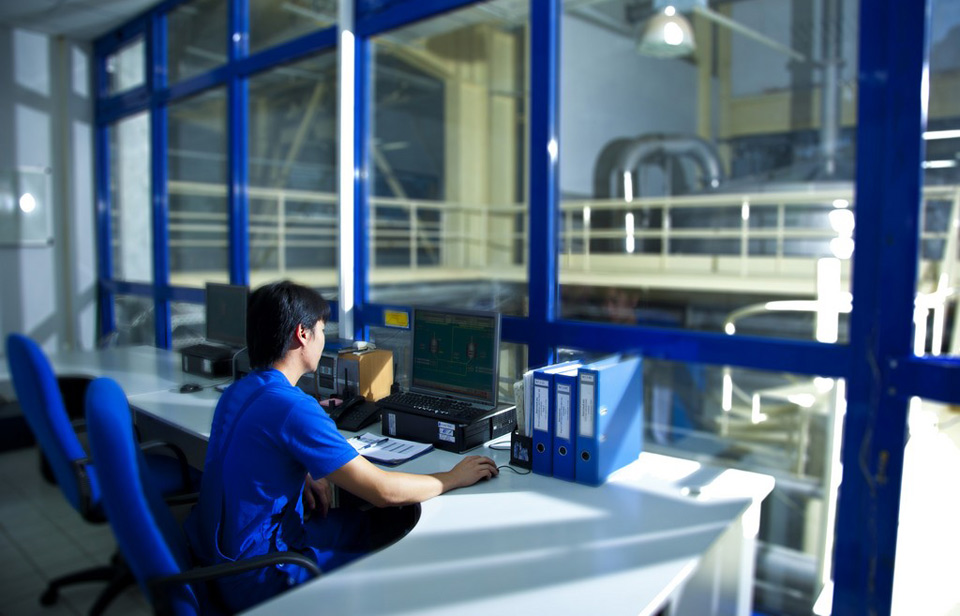
Fermentation Department
The cooled wort is pumped into the fermentation tank. When pumping in the fermentation shop, special beer cultural yeast is added to the wort. At this time, all the sugars contained in the wort are fermented, forming alcohol and carbon dioxide. By the end of the process, as the nutrients in the wort decrease, the yeast loses its activity and settles on the bottom of the CCT (cylindrical-conical tanks) and is then removed. Beer, past the stage of fermentation, is called "young beer" and is sent to the next stage - fermentation and maturation.
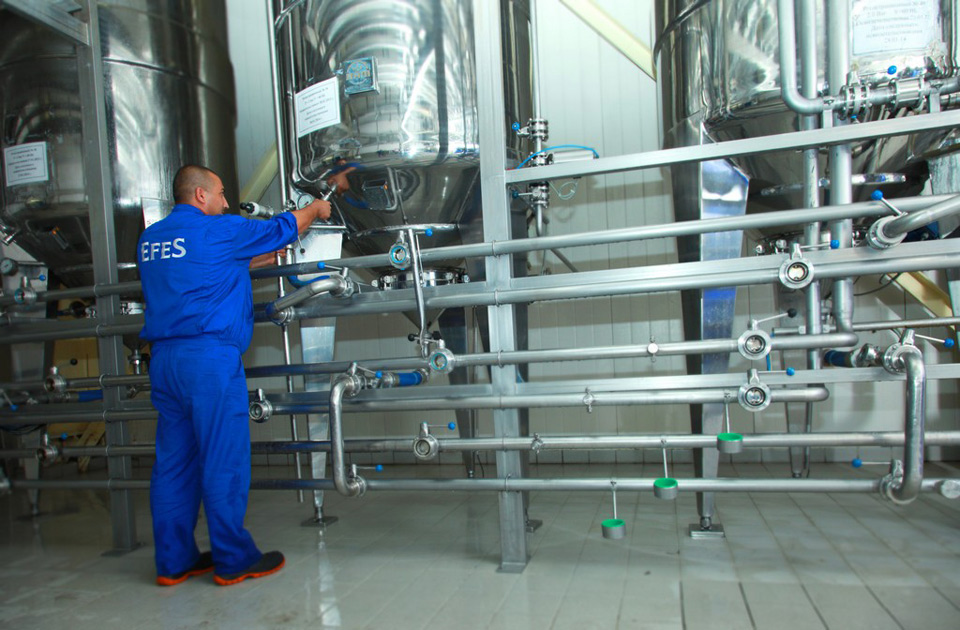
Filtration Department
Well-brewed and cooled beer is sent to the filtration department where the clarification process takes place. Since the particles causing the turbidity of beer are complex in their structure and different in size, the best method for their removal is filtration using an auxiliary material - kieselguhr, which has excellent absorbing properties.
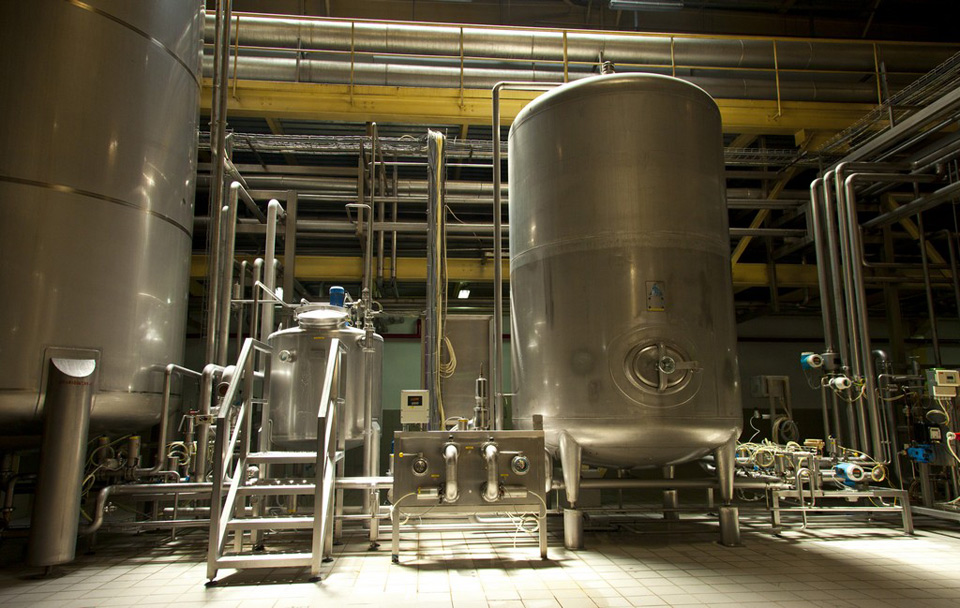
Filling
Having achieved the transparency of the drink, we direct it to pasteurization and bottling. The packaging for bottling is thoroughly disinfected and checked by special sensors. Then, on the filling line, the ready-made drink is poured into bottles, cans or kegs, sealed and labeled. Poured beer is delivered to a packaging line, where multipacks or pallets are formed, which are then carefully delivered to every city in Kazakhstan.

Laboratory
The current GOST contains 7 parameters that must be met by the finished beer. However, in Efes Kazakhstan the quality of the beer is also estimated by the internal system Efes Quality Control, which includes 35 indicators.
The Efes Kazakhstan laboratory strictly controls both the input material and the finished product for physicochemical and microbiological indices, and every stage of beer production is carefully monitored.
